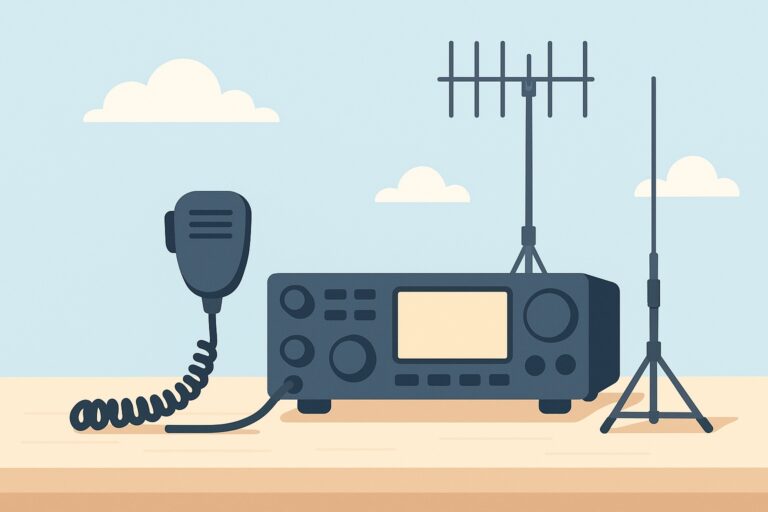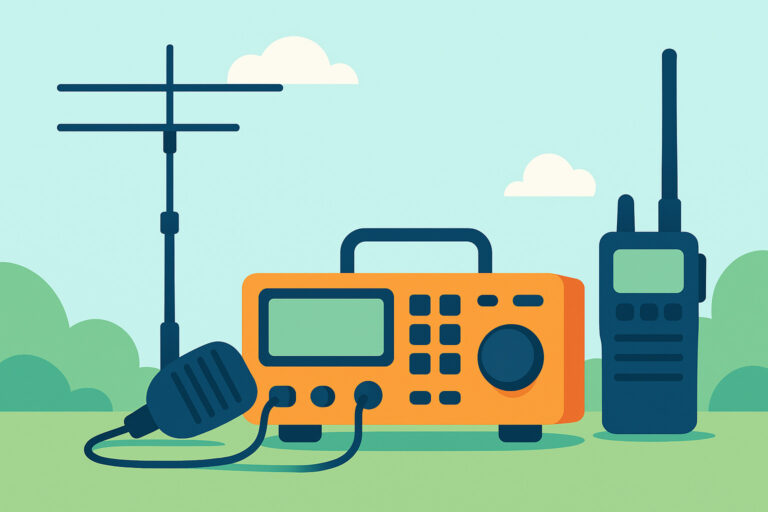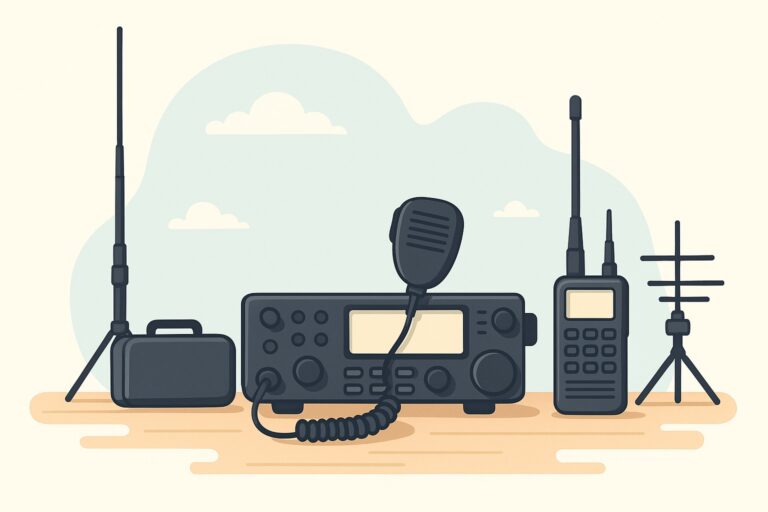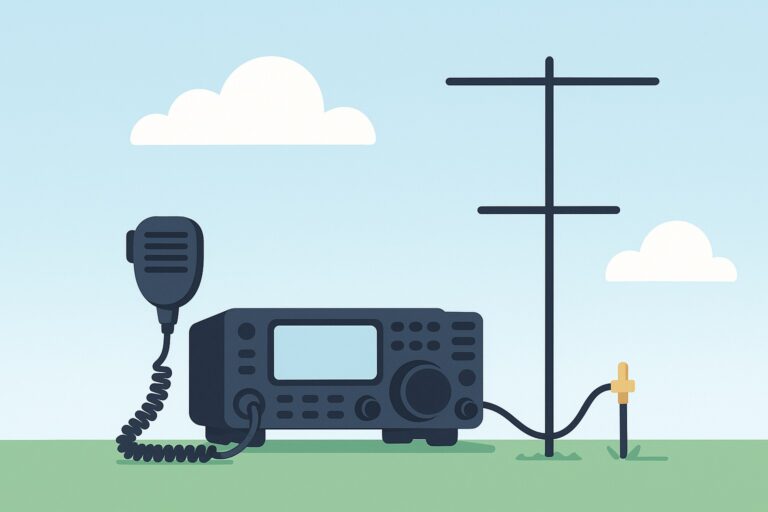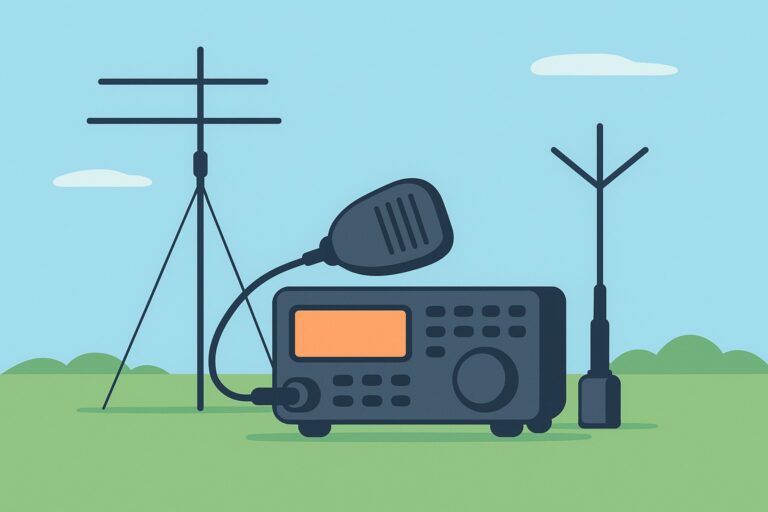How to Upgrade from Technician to General Class License
Upgrading your ham radio license from Technician to General Class is an exciting step that opens up a whole new world of operating privileges and opportunities for amateur radio enthusiasts. Whether you’ve been active on VHF/UHF repeaters or are eager to explore the magic of HF bands, moving up to General Class can significantly enhance your radio experience and connect you with a wider community of operators around the globe.
How to Upgrade from Technician to General Class License
Introduction to Upgrading Your Ham Radio License
Many ham radio operators begin their journey with the Technician Class license, which provides access to local communications and a taste of the amateur radio hobby. As of October 2024, there are 368,684 active Technician Class license holders in the United States. This entry-level license is an excellent starting point, but as your interests grow—especially toward high-frequency (HF) communications—you might find yourself wanting more privileges and flexibility.
Upgrading to the General Class license is the natural next step for many Technicians. The process involves studying for and passing a new exam, but the rewards are well worth the effort. In this guide, we’ll walk you through the benefits of upgrading, what to expect on the General Class exam, effective study strategies, the logistics of scheduling your test, and how to make the most of your new privileges once you upgrade. The information here is tailored for intermediate operators who are ready to take their ham radio skills to the next level.
Benefits of Upgrading to General Class
One of the most compelling reasons to upgrade from Technician to General is the significant expansion of your operating privileges. With a General Class license, you’ll gain access to a much broader range of HF frequencies, allowing you to communicate over long distances and explore new modes of operation.
The General Class license grants access to additional HF bands, including 160, 30, 17, and 12 meters. These HF bands are prized for their ability to support worldwide contacts, especially during times of favorable propagation. As a General, you’ll also enjoy expanded portions of existing bands that were previously restricted under your Technician privileges, giving you more opportunities to experiment and connect with hams worldwide.
Beyond access to new frequencies, upgrading to General Class can expand your knowledge and skills. You’ll deepen your understanding of radio theory, regulations, and best practices. Plus, you’ll be able to participate in a wider variety of contests, special events, and public service activities, some of which are reserved for higher license classes.
Upgrading can also connect you more closely with the ham radio community. As of October 2024, there are 184,874 active General Class license holders in the United States. Joining their ranks means you’ll be part of a vibrant and knowledgeable group of operators who are passionate about amateur radio.
Understanding the General Class License Exam
To upgrade from Technician to General, you’ll need to pass the General Class exam, also known as Element 3. This exam is designed to ensure that you have a solid understanding of the technical, regulatory, and operational knowledge required to use your new privileges responsibly.
The General Class exam consists of 35 multiple-choice questions covering topics such as operating practices, regulations, and electronics theory. You’ll encounter questions about frequency allocations, station setup, signal propagation, antennas, safety, and more. The exam is not overly difficult for those who have studied, but it does require a deeper understanding of radio concepts compared to the Technician test.
It’s important to note that you’ll need to hold a valid Technician Class license before taking the General exam. If you’ve let your Technician license expire, you’ll need to renew it first. The exam is administered by Volunteer Examiners (VEs) at authorized testing sessions, which are held regularly across the United States and increasingly available online.
Passing the General exam is a significant achievement and marks a major milestone in your amateur radio journey. With preparation and the right resources, you’ll be well on your way to joining the ranks of General Class operators.
Effective Study Strategies for the General Class Exam
Preparing for the General Class exam requires a focused approach and a commitment to learning the material. Here are some effective strategies to help you succeed:
- Use Official Question Pools: The exam draws from a published question pool, so reviewing these questions is essential. Study the current pool to familiarize yourself with possible exam content.
- Online Practice Tests: Take advantage of online practice exams that simulate the real test environment. These can help you identify areas where you need more review and build your confidence.
- Study Guides and Books: Invest in reputable study materials specifically designed for the General Class exam. Many books break down complex concepts into manageable sections.
- Join a Study Group: Studying with others can provide motivation and allow you to discuss challenging topics. Local ham clubs often host study sessions or online meetups.
- Hands-On Learning: Whenever possible, apply what you’re learning in practical settings. Experiment with antennas, radios, and on-air contacts under supervision if needed.
- Set a Study Schedule: Consistency is key. Set aside regular study times each week and focus on one topic at a time to avoid feeling overwhelmed.
Remember, learning is a journey. If a particular concept—like propagation or circuit theory—seems tough at first, break it down and revisit it as needed. The more you engage with the material, the more comfortable you’ll become. For additional resources tailored to General Class candidates, be sure to check out https://hamradioplayground.com, where you’ll find up-to-date tips and practice questions.
Scheduling and Taking the Exam
When you feel prepared, the next step is to schedule your General Class exam. Exams are conducted by Volunteer Examiner Coordinators (VECs) and can be taken at in-person sessions or, increasingly, online through remote proctoring.
To find a test session, reach out to local ham radio clubs, check national VEC websites, or use online test session locators. Many organizations offer flexible options to accommodate various schedules and locations.
Be sure to bring the required identification, your current Technician license, and any other paperwork requested by the testing team. It’s also important to note that the FCC implemented a $35 application fee for amateur radio licenses in April 2022. Be prepared to pay this fee after you pass your exam, as it is required for processing your license upgrade.
During the exam, take your time and read each question carefully. If you don’t know an answer, make your best guess—there is no penalty for incorrect answers, and you only need a passing score to succeed.
Post-Exam Steps and Utilizing Your New Privileges
Once you pass the General Class exam, congratulations are in order! Your Volunteer Examiners will submit your results to the FCC, and after your upgrade is processed and the fee is paid, you’ll be officially granted your new privileges.
While waiting for your new license to be reflected in the FCC database, you can typically start using your General privileges right away, provided you follow any instructions given by your VEs. Be sure to review the specific HF bands and frequencies now available to you, as well as any new operating rules.
With your General Class license, you can now explore the world of HF communications, participate in international QSOs, join new nets, and experiment with different modes like digital, CW, and SSB. This is also a great time to join new online forums and local clubs, and to consider upgrading your station equipment if needed.
Most importantly, enjoy the expanded horizons and connections that come with your General Class license. Whether you’re chasing DX, experimenting with antennas, or lending your skills to emergency communications, your upgrade marks a significant achievement in your ham radio adventure.


